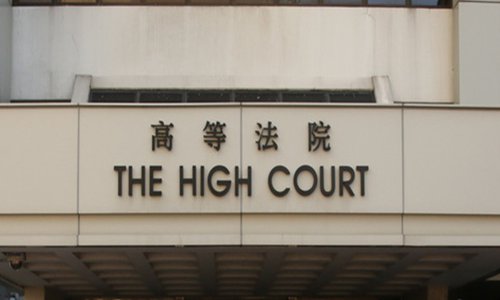
The High Court of HKSAR on July 14, 2017 (Photo: Xinhua)
Some members of the Legislative Council (LegCo) of the Hong Kong Special Administrative Region (HKSAR) have raised questions about the practice of some judges who openly expressed their political positions and violated the principle of political neutrality.
After three judges anonymously expressed their stance on newspapers and another judge participated in a petition against the proposed amendments to two HKSAR ordinances concerning the transfer of fugitive offenders about five months ago, which have been formally withdrawn, concerns have been raised in the Hong Kong society about the credibility and neutrality of judges, Leung Mei-fun, a member of the HKSAR LegCo, said at a LegCo meeting earlier this week.
Stressing that judges should not openly express their political stances, Leung criticized the three who identified themselves as judges but remained anonymous when interviewed by media for "making the public believe that the judges were objecting to the amendments while avoiding legal or other liabilities."
She urged the judiciary to investigate into the incident and suggested that all judges be required to sign statutory declarations to confirm that they are not the anonymous judges.
Another LegCo member Ip Lau Suk-yee said at another meeting on Thursday that the participation by one of the judges in the petition against the ordinances amendments has shown that he has strong individual political convictions but no judicial sentiment.
Ip pointed out that it is the common responsibility of the executive, legislative and judicial organs to stop violence and chaos, and judges should also play a role in dealing with the current turmoil in Hong Kong.
Many LegCo members, including Leung and Ip, have suggested that the HKSAR judiciary take measures similar to that of Britain in dealing with its 2011 riots, namely setting up a 24-hour special court to speed up trials of cases related to the riots in Hong Kong.
"To delay justice is equal to denying justice," Leung said, adding that in major social storms such as the current one, the whole society is expecting the court to give an explanation as soon as possible on "where is the legal bottom line in Hong Kong."


